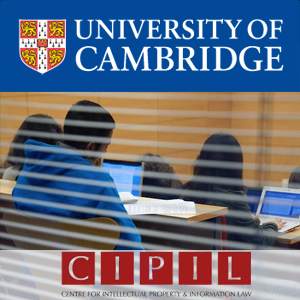full
'Bioscience, patent law, and the generally-overlooked requirement of industrial application' - Christopher Rennie-Smith: CIPIL Seminar
Christopher Rennie-Smith, of the Board of Appeal - European Patent Office, gave an evening seminar entitled "Bioscience, patent law, and the generally-overlooked requirement of industrial application" on Thursday 13 February 2014 at the Faculty of Law as a guest of CIPIL (the Centre for Intellectual Property and Information Law).
The requirement that an invention be capable of industrial application – the third limb of patent law’s ‘trinity’, along with novelty and inventive step – is a provision that traditionally reared its head in the context of perpetual motion machines, flying saucers or frictionless water wheels. More recently, and of far more economic significance, it has been directed at bioscience inventions. Christopher Rennie-Smith, chairman of a Board of Appeal handling biotechnology cases at the European Patent Office, will share his insights on the fascinating question of whether early stage biotechnology research, often in silico, is better characterised as invention or research programme, and the implications this has for scientific research. In the same context, he will also talk from experience of the parallel decision-making processes of domestic courts and the EPO Boards of Appeal, the increasing role of the Court of Justice of the EU and the future Unitary Patent Court.
Christopher Rennie-Smith is a Chairman of a Board of Appeal and member of the Enlarged Board of Appeal at the European Patent Office. He was previously a lecturer in law at Sheffield University and then practiced for over twenty years as a lawyer in London, specializing in intellectual property litigation.
For more information see the CIPIL website at http://www.cipil.law.cam.ac.uk

